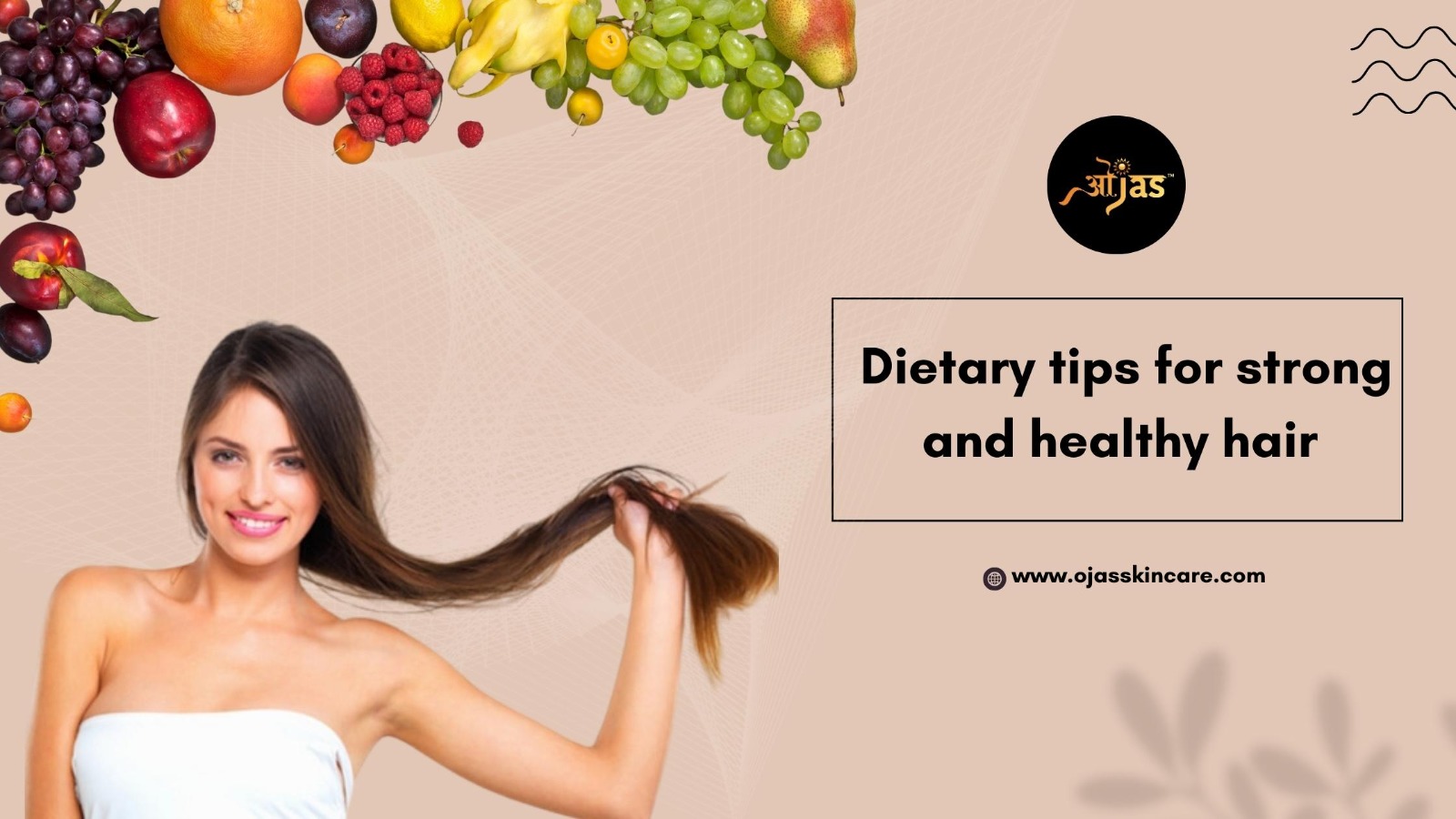Dietary Tips For Stronger And Healthier Hair
Shiny and healthy hair is the attribute of healthy people looking after themselves and taking good care of their bodies. How fast the hair grows , how healthy the hair is and the density of hair depends on many factors like genetics, age, overall health, environmental factors, dietary habits and other physiological conditions. We cant change factors like age and genetics but we do have control over our diet.Weak, falling out hair might extremely lower the confidence of a person , leading to lowering of self-esteem and stress.
Many studies have suggested that deficiencies of nutrients like vitamin B12, biotin, riboflavin, iron, proteins etc can lead to hairfall. Having a balanced diet with portions containing these complex carbohydrated, essential fats, proteins, vitamins, minerals etc can boost hair growth, decrease hair fall, make our hair look heavier, lustrous and decrease brittleness of hair.
Including the following sources of these macro and micro nutrients will not only ensure the wellbeing of the hair but also the overall health of the person.
- Protein deficiency in the diet causes disturbed and weak hair growth and hair loss. Good sources of proteins in diets should be cottage cheese, yoghurt, fish, meat, poultry , legume seeds (soya, lentils, beans, peas, broad beans), seeds (pumpkin and sunflower seeds, sesame), nuts (pistachio, peanuts), grain products (barley, brown rice, whole-meal bread and graham bread). Eggs are an additional source of protein and it is recommended to consume 1-2 eggs per day.
- Fats- Fats present in the diet take part in hormone synthesis that helps in hair growth. Deficiency of essential fats in the body leads to a decrease in hair hydration and hair fall. The omega-3 polyunsaturated fatty acids family, which are essential for hair growth, are found in fish, flax seeds, walnuts, wheat. Other sources of fat include fish, poultry, eggs, olive oil and rapeseed oil.
- Carbohydrates- It has been shown that consumption of highly processed foods, rich in simple sugars, is one of the indirect factors causing excess hair loss. It is advised to replace simpler sugar in the diet with sources of complex carbohydrates like full grain breads, grits, rice, whole meal pasta, vegetables and fruit with low glycemic load.
- Vitamins – Vitamins also have an impact on the state of hair: vitamin-c, group B vitamins and vitamin-A and vitamin D
(a)Vitamin C has strong antioxidant properties that protect the hair from damage by antioxidants. It also helps in the production of collagen, which strengthens hair and also helps in absorption of iron from the diet( low levels of iron causes anemia and eventually hair fall). Dietary sources of vitamin C are: vegetables (green parsley leaves, peppers, Brussels sprouts, broccoli, cauliflower and spinach) and fruit (black currants, strawberries, wild strawberries, kiwi, red currants and citrus fruit)
(b)The best source of vitamin-D diet should be fat fish (marcel, salmon, sardines), whale or tuna liver oil,mushrooms, and yeasts
(c) Folates take part in producing red blood cells and hemoglobin, whose role is to transport oxygen, among others, to tissues building hair. The folate sources in the diet should be: brussels sprouts, green peas, dry peas, white beans, asparagus, beets, eggs and poultry liver.
(d)Pantothenic acid (B5 vitamin) prevents early hair graying and can restore its natural color. It is also responsible for proper hair growth. Sources rich in vitamin B5 are: mushrooms, cauliflower, liver, soya, eggs, and baking yeast, whole grains, beans, milk and green leafy vegetables .
(e)Biotin (B7 ) is a vitamin taking part in fat and protein metabolism and its deficiency might lead to hair loss. Biotin can be found in vegetables, and in meat, liver, egg yolk, yeast and some nuts.
(f)Niacin keeps the scalp healthy, decreases inflammation, supports and influences new hair growth. Source of niacin in the diet are: meat, whole wheat grains, legume vegetables, seeds, milk, green leafy vegetables, fish, peanuts, shellfish and yeast .
(g)Cobalamin (B12 vitamin) is associated with anemia and hair loss. The sources of B12 are animal products: meat and processed meats, fish, eggs, milk and dairy products and seafood.
(h) Deficiency vitamin-A might impair regeneration and synthesis of hair. Too much vitamin-A in the diet also leads to hairfall. A good source is its form coming from carotenoids present in vegetables and fruit.
5. Minerals – Minerals which influence hair growth are: Zn, Fe, Cu, Se, Si, Mg and Ca.
(a)Zinc deficiency in diet suppresses hair growth, can lead to hair fall, thin white and brittle hair. One should include following foods in the diet to prevent zinc deficiency- oysters, red meat, poultryfish, seapumpkin seed etc.
(b)Iron deficiency has been associated with patchy hair loss, male pattern baldness and chronic hairfall . The best sources of iron and copper are animal products containing beef and pork, poultry, pork and lamb liver, fish. Plant sources of iron and copper include: soya, white beans, pasticcio nuts, green parsley leaves, dried apricots and figs.
(c)Selenium is an antioxidant which decreases the oxidative damage due to free radicals which is responsible for hair fall. The main food groups providing selenium in the diet are bread and cereals, meat, liver, fish (cod, canned tuna), eggs, and milk/dairy products.
(d)Silicon is responsible for the growth and shine of hair. It can be found in grains and their whole meal products (grits, rice, oatmeal and bran, whole grain breads), in garlic and seafood.
(e)Magnesium takes part in hair regeneration and decreases hair fall. The source of magnesium in women’s diet should be cacao, grits, whole grain breads, nuts and legumes.
(f)Calcium is also an element playing a significant role in keeping hair in the proper state and women in particular in the perimenopause period, are exposed to its deficiency. Dairy products containing lactose facilitating its absorption and also soya, parsley green leaves, hazelnuts, white beans, walnuts, fish and cabbages.
